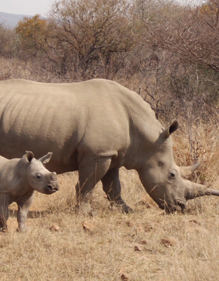
I'm a proud "eco-warrior" and have a strong interest in protecting our environment. Can corruption harm the environment? – Concerned eco-warrior
Dear Eco-warrior
In recent decades, environmental degradation has become a serious problem. It is deeply concerning that we are threatening the existence of whole ecosystems, and environmental damage can also have serious implications for food and water security.
Because corruption is not unique to any one sector, it is not surprising that it raises its head in the context of environmental regulation and protection.
Two examples provide an illustration.
The first is the way in which corruption hinders natural resource management and facilitates the overexploitation of natural resources.
In a recently published research article, Aksel Sundström, a PhD candidate at the University of Gothenburg, Sweden, found that bribery among South African government fishing inspectors contributed to overfishing. Sundström noted that inspectors in the fishing sector had clearly become part of the problem.
Certain officials act as informants and will warn poachers of police operations. Some inspectors are even engaged in illegal fishing themselves. Early last year, a police officer in Simon's Town was arrested with illegal marine resources worth thousands of rands in his freezer.
The research findings highlight the importance of curbing grand and petty corruption to protect our natural resources.
The second example is the way in which corruption impacts climate change initiatives.
We are not used to thinking about climate change as a multibillion-dollar global industry, but responding to it involves huge expense.
Between 2010 and 2012, governments provided more than $30-billion to fund projects that helped countries around the world adapt to or mitigate the impacts of climate change. This financial support is channelled through global funds that support these initiatives in more than 100 countries.
Transparency International recently reported that the 10 most climate-vulnerable countries in the world (which receive a large amount of funding) obtained very low scores on the group's Corruption Perceptions Index 2014, indicating that public sector corruption in these countries was perceived to be high.
Climate money is vulnerable to many of the risks inherent in public financing arrangements, but it also presents new ones. It is a relatively new system and the new laws and policies mean that there are grey zones and loopholes.
In addition, there is a complex network of funder, government ministries and implementing agencies, leaving gaps for fraud and corruption. It can be difficult to ensure that money sent to reforest a rural area is actually spent on trees. Climate finance is also used in sectors such as construction, public works and power generation that are susceptible to bribery or bid rigging.
It is important that we call for greater transparency in efforts to reduce the impacts of climate change. Communities must be involved in overseeing the delivery of projects.
• This article was first published in Sunday Times: Business Times

